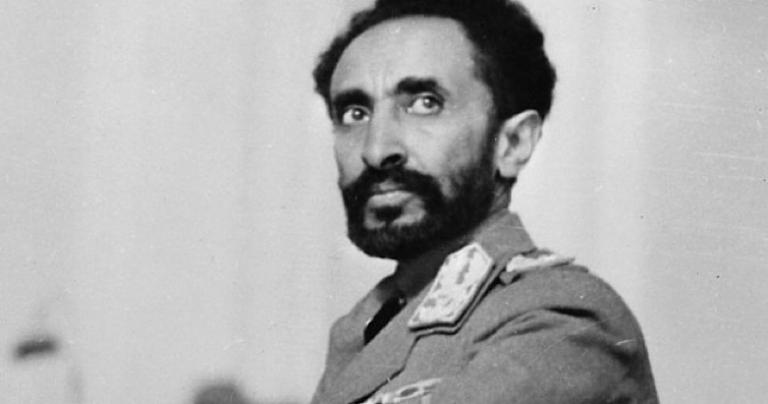 We created a model of undergraduate education that may not work well. In fact, is our failed model a source of bad revolutionary ideologues?
We created a model of undergraduate education that may not work well. In fact, is our failed model a source of bad revolutionary ideologues?
Over the weekend I was reading a brief history of Ethiopia. That proud nation faces martial rule for the second time in the recent past. Pray for Ethiopia.
In the late 1960’s and early 1970’s, Ethiopia was poor, but headed in good directions. It is easy to imagine a constitutional monarchy with a South African style economy in Ethiopia. Instead, we have a nation that is not quite totally a failed state, but is a failure compared to the possibilities of the history of the Ethiopian peoples.
College was part of the problem.
Want to destroy progress?
Create a college population in a nation that is changing. Fill them with idealism and ideology. Assume the “youth are the future.” By all means listen to their wisdom and assume that the arc of history is going their way. Ask Nicholas II. It is a great way to get Stalin. Ethiopia is yet another example in a list that is long: the brightest and best embracing the dimmest and worst ideas.
Reading yet another story of yet another country (Ethiopia) overturned with the help of college students . . .who made a promising situation worse made me question a deep assumption of modern Western society: the universal usefulness of the “traditional” undergraduate college.
The folly of the college population in Ethiopia in the 1970’s was plain. They lived in a very imperfect state that still was much, much better off than any that their grandparents experienced. The grandparents and parents were making things better, though had failed at perfection. The students dreamed it could be better, much better, by quickly embracing genuinely terrible ideas, ones already known to fail, and deciding nothing could be worse than Imperial Ethiopia.
They were wrong.
The Imperial regime was (in part) overthrown for failing to respond well to famines in the nation. The revolutionary regime that the students helped build created famines that were much worse. The socialist regime they created made the Imperial regime look super competent by comparison: some incompetent bunglers replaced by a government full of intentionally malicious bunglers.
This made me wonder, since this is one of many such stories I have read. Leave aside graduate education and university research. Is there a problem with the structure of college education? It is (after all) an accident of the technology of the time that we had to have centralized campuses. It is a feature of the growth of colleges from church and monastic foundations that they have “dorms.” Things could have been organized differently.
Five questions:
Is it good to separate education from family and community?
Going “away” for school is not obviously a great idea. There are obvious good sides to it. Is is not hard to think of problem.
Should we reconsider the model?
Is age segregation good for education?
Maybe it would help us all if we all lived in one vibrant community: college age, older, babies. Is it harder to be an ideologue if you have to hear multiple perspectives?
Someone might say that the “elite” in college are a natural bubble, but the educational elite have formed some of the worst governments of all time. (See Ethiopia.)
Even if the model has merits in some cultures, is it appropriate or necessary everywhere?
The temptation is to look at the benefits of Western civilization and adopt every feature of the West to get the benefits. If the West has hospitals, the nation might try to build the very same sort of buildings, even if they are not appropriate to the climate. If you are building the Panama Canal, a French-style hospital might have practices that work in France but that breed mosquitoes in Panama.
Do we make students unfit for the world that exists? Do we create “utopias” that cannot exist without massive state subsidies (centralized colleges) and tempt students to apply that model to the whole of culture?
Should a very agricultural nation send all the brightest and best to urban centers cut off from the problems back home?
Why does college education breed (right and left) facile ideology?
I do not know the answer to this question, but whether Russia, Weimar Germany, or Ethiopia in the 1970’s, many nations have had the privileged students at college help destroy the future.
Is the job of professor part of the problem?
Too many of us are cut off from life outside the academic bubble. This is hardly ever true of k-12 teachers. They are situated much closer to our diverse communities.
Let’s integrate at least much of the job (first two years?) with the rest of teaching. Elevate the status and pay of the k-12 teachers. Fire most administrators and make professors teachers.
Research centers are needed, but let’s fund the teaching centers first.
Here is a not-so-radical solution:
Let’s make undergraduate education free at any accredited school and integrated with k-12 education. Put the job training into grad school and charge for that part of schooling. Leave the younger adults in their home communities so states like West Virginia or urban areas do not suffer brain drains to “smart” places,
We can use technology to allow for individualized curriculum: kill the credit hour. Instead, let’s use a competency based approach to get students the skills they need as efficiently as possible while also allowing mentoring tied to their home cultures and communities.
Maybe the system is broken and designed to let ideologues, left or right, flourish. Maybe.*
——————————-
*And of course the answer is not to be Know-Nothing’s and reject dialectical, challenging education. I am questioning the geography, not the goal of college education.











